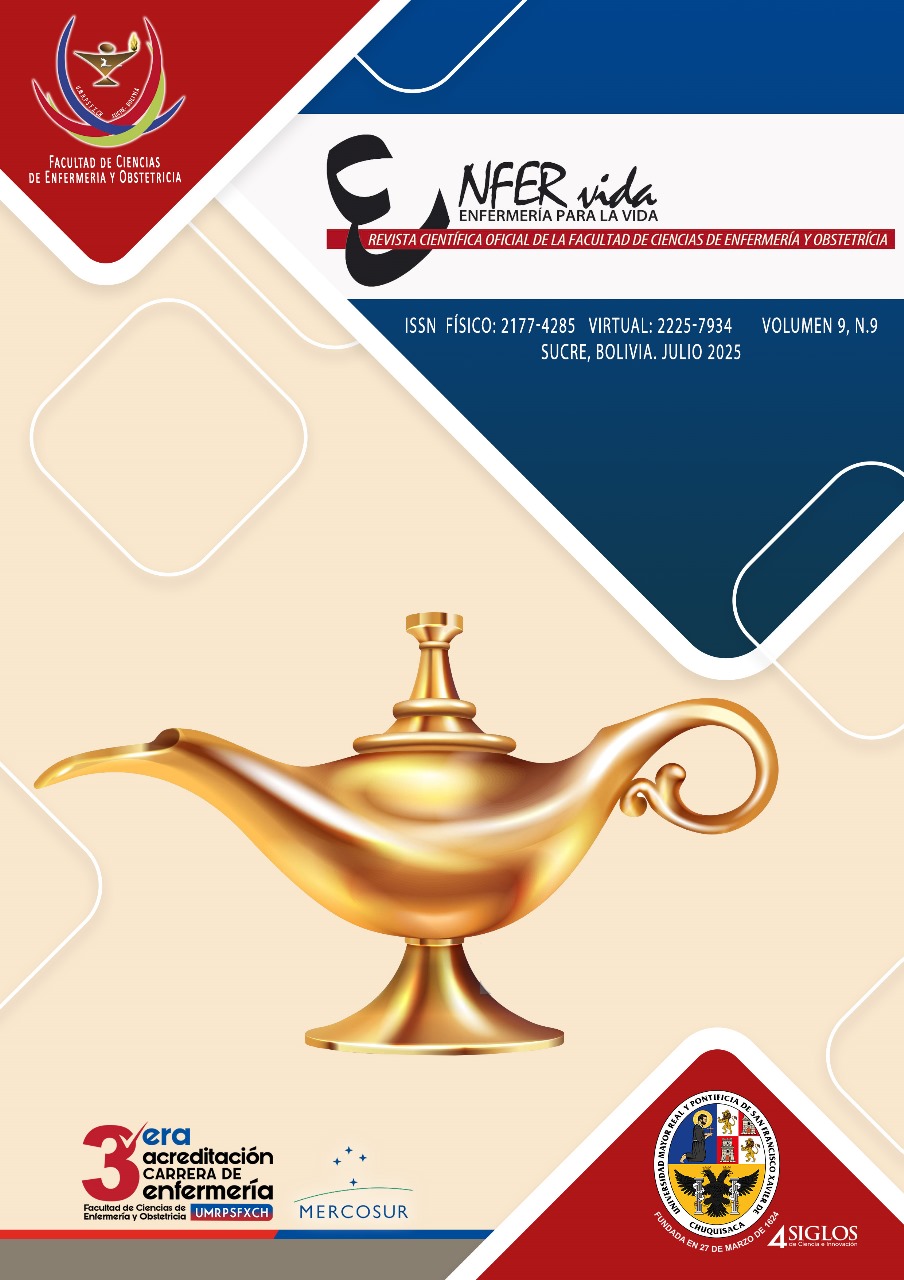NURSING INTERVENTIONS IN HYPERTENSIVE CRISIS IN PATIENTS SEEN IN THE EMERGENCY SERVICE
Keywords:
Hypertensive Crisis, Urgency, Emergency, Nursing InterventionsAbstract
Hypertensive crisis is defined by an acute elevation of blood pressure (SBP ˃ 180 mmHg) and DBP ˃ 120 mmHg. Hypertensive emergencies are classified as emergencies when there are no signs of progressive target organ damage, or when a hypertensive emergency is associated with acute or progressive target organ damage. Objective: To assess the knowledge and interventions performed by nursing staff in patients with hypertensive crisis who attend the emergency department. Methods: A descriptive, quantitative, non-experimental study was conducted. A survey technique was applied to six nurses working in the emergency department of the Red Cross Health Center. The study variables were: knowledge and interventions by nurses in hypertensive crisis. Data were collected using the survey technique and a questionnaire. Data were analyzed using Microsoft Excel. Results: 67% of the nursing staff had average knowledge of hypertensive crisis, and 33% were knowledgeable about it. 67% of nursing interventions are average, 17% are poor, and 16% are rated good for their nursing interventions. Conclusion: Analysis of the nursing staff's knowledge assessment reveals a high percentage of the study population with average levels of nursing interventions.


